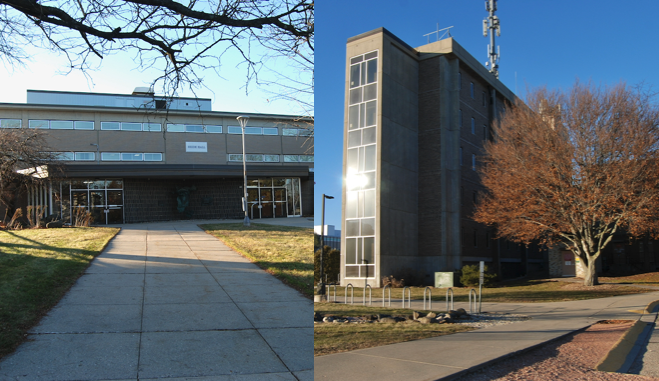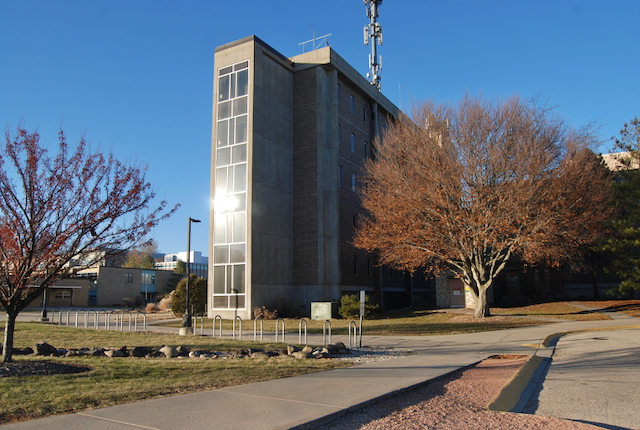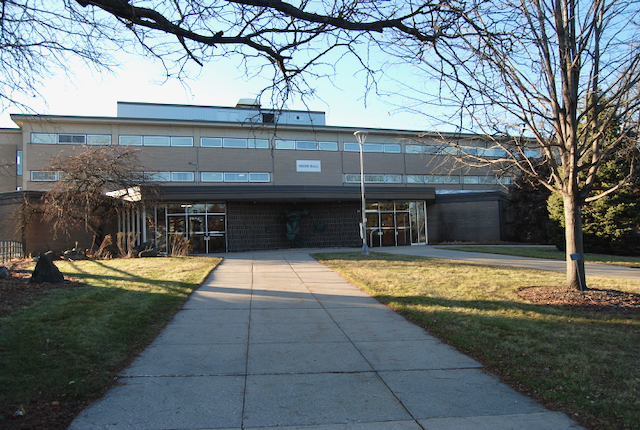Regents vote in favor of state funding proposal capping UW DEI employees; UW-Whitewater buildings slated for renovations
- Home
- Regents vote in favor of state funding proposal capping UW DEI employees; UW-Whitewater buildings slated for renovations

Regents vote in favor of state funding proposal capping UW DEI employees; UW-Whitewater buildings slated for renovations
By Kim McDarison
The Universities of Wisconsin Board of Regents voted last Wednesday in favor of a funding plan submitted by the Wisconsin State Legislature which will, among its provisions, limit the number of employees hired across the full university system, while freeing resources to fund improvements on two campuses, including the University of Wisconsin-Whitewater.
During an earlier special meeting, held Saturday, Dec. 9, the Board of Regents voted 9-8 against the resolution which would, among its stipulations, limit the number of employees hired across the system’s institutions, especially those relating to DEI (diversity, equity and inclusion), and release money for several building projects, including one which will affect both Heide and Winther halls on the UW-Whitewater campus.
After the the resolution failed, the Board of Regents held a second special meeting on Wednesday, Dec. 13, during which a second vote was taken. This time, the resolution was approved by a vote of 11-6.
Regents who changed their votes included board President Karen Walsh, a director of a foundation dedicated to human and animal health and welfare whose term ends in 2026, board Vice President Amy Blumenfeld Bogost, a criminal defense attorney whose term ends in 2027, and Jennifer Staton, a student enrolled at UW-Parkside whose term ends in 2024.
Some $78.5 million has been earmarked for the renovation projects approved within the resolution for the two UW-Whitewater buildings.
Responding to questions from WhitewaterWise by email, Universities of Wisconsin Media Relations Director Mark Pitsch said: “As outlined in the agreement, work on the Winther/Heide hall project is contingent upon action by the state Legislature and it is too early to discuss details of the project.”
Reacting to the Board of Regents’ most recent decision, Greater Whitewater Committee President Jeffery Knight, in a statement, said: “The Greater Whitewater Committee has been in support of the renovations of Winther and Heide halls for some time, and we are very appreciative that this project is getting done, and it’s crucial for our future graduates of the College of Education, so they are better prepared to enter classrooms across the state and meet the challenges of educating our kids.”
Also included within the resolution was a stipulation that the Legislature’s Joint Committee on Employment Relations would approve the pay plan and the trades contracts for system and UW-Madison employees no later than December 31, 2023, with an effective date of July 1, 2023.
JR Ross, editor of WisPolitics.com, noted on Wednesday that his news service published a story with the headline: “Vos says Republicans ‘not done yet’ targeting DEI after approving UW pay raises.”
The WisPolitics story reports that “the Joint Committee on Employment Relations voted Tuesday to implement raises which were funded in the state budget.” The measure was approved by a vote of 5-1, the story noted.
According to the story, a 4% wage increase was approved for UW employees in 2023, retroactive to July 2, and a 2% increase was approved for 2024.
A link to the full WisPolitics story is here: https://www.wispolitics.com/2023/vos-says-republicans-not-done-yet-targeting-dei-after-approving-uw-pay-raises/.
What’s in the resolution?
According to the resolution, the wording of which remained unchanged between the two special meetings, the UW system will maintain through Dec. 31, 2026, the number of positions across the entire enterprise that are funding by either GPR (general purpose revenue) or program revenue dollars, including tuition, at the level in effect on Jan. 4, 2024.
The position cap will not apply to faculty or instructional and other staff who spend at least 75% of their time working directly with students or patients, or whose research positions are funded at 75% or more by gifts or grants, the document states.
Part-time student employees, who gain both useful employment experience and whose employment helps fund their educational pursuits, would likewise by excluded, the document notes.
In addition, the document stipulates, that through Dec. 31, 2026, the system will not increase from the level currently in effect the aggregate number of positions that serve the system’s core DEI functions.
The resolution reads: “In addition, to continue the enhanced focus on student success, the system will, through a mixture of normal attrition and active restructuring and reimagining of DEI function, realign over two academic years at least 33% of the above-referenced roles that are currently filled — or at least 43 positions — to areas with a primary focus on academic and student success.”
Also noted in the resolution: “UW-Madison will seek philanthropic support to create an endowed chair to focus on conservative political thought, classical economic theory, or classical liberalism, depending on the donor’s interest, conducting a national search to fill the position.”
Further, the document states: “UW-Madison will not renew the Target of Opportunity Program (TOP) after completion of the 23/24 academic year. In lieu of TOP, UW-Madison will initiate an alternative program focused on recruiting faculty — regardless of their identity or ethnic/racial background — who have demonstrated the ability to mentor ‘at risk’ and/or underrepresented students to achieve academic success and who have demonstrated academic and research excellence. The system will eliminate — unless specifically required by applicable accreditation bodies — any requirement for a diversity statement in the system-designed admissions application consistent with the action previously taken regarding diversity statements in employment applications. The system will develop and implement on all campuses a module regarding freedom of expression for entering undergraduate students.”
Additionally, the resolution includes language stating that the UW system will support the adoption of a statute pursuant to which the top Wisconsin residents attending high school in Wisconsin will have the opportunity to receive automatic admission to UW-Madison if they are in the top 5% of their graduating class or automatic admission to any other UW institution if they are in the top 10% of their graduating class.
The resolution stipulates that the Legislature’s Joint Committee on Finance will approve before the end of the legislative session in February of 2024 the system’s request for a supplemental appropriation of $32 million for workforce development, as well as enumerate by the same deadline a proposed new engineering building to be built on the UW-Madison campus and “the Winther/Heide Hall project at the UW-Whitewater” campus.
The terms of the project in Whitewater are “as set forth in the system’s original budget request,” according to the document.
The document also makes adjustments to how funds are allocated related to the Minnesota-Wisconsin reciprocity agreement regarding costs associated with student tuition.
The resolution further stipulates that the Legislature “will approve no later than before the end of the legislative session in February 2024 $45.4 million in one-time GPR funding to be used by various universities to demolish unused and/or uninhabitable facilities on system campuses.”
A list of campuses with demolition projects is included in the resolution. No such projects are slated for the UW-Whitewater campus, according to the list.
The full resolution as approved by the regents is here: https://www.wisconsin.edu/regents/download/meeting_materials/2023_meeting_materials/Meeting-Book—Special-Board-of-Regents-Meeting-(December-13,-2023).pdf.
Those serving on the Board of Regents include Board President Karen Walsh, and regents: Angela Adams, Robert Atwell, Amy Blumenfeld Bogost, Evan Brenkus, Hector Colon, Mike Jones, Jim Kreuser, Edmund Manydeeds III, John W. Miller, Cris Peterson, Joan Prince, Ashok Rai, Jennifer Staton, Mark Tyler, Jill Underly, Dana Wacks, and Kyle M. Weatherly.
A link to the full list of regents, including a short bio for each, is here: https://www.wisconsin.edu/regents/about-the-regents/.
A message from the chancellor
UW-Whitewater Chancellor Corey King, in a “message from Chancellor King” found on the UW-Whitewater’s announcement page, directs interested members of the university’s faculty and staff to a message from Universities of Wisconsin President Jay Rothman issued last Thursday.
Within his message, Rothman outlined details found within the resolution approved by the regents, further noting that, would the Legislature act, the Universities of Wisconsin would:
• Cap overall non-faculty positions at the state’s universities for three years, with additional exceptions for student-facing and research positions.
• Cap and restructure 43 positions dealing with diversity, equity and inclusion (DEI). Rothman wrote: “It is important to note that nobody will lose their job under this agreement and these reclassifications would happen over the next two academic years.”
• Support legislation that would guarantee admissions for the top 5% of high school graduates at UW-Madison and the top 10% at all other universities within the statewide system.
• Address specific issues connected to diversity and inclusion issues at the universities. As part of that initiative, Rothman wrote that UW-Madison will seek philanthropic support to create an endowed chair, through a national search, on conservative political thought or a similar field; UW-Madison will not renew its Target of Opportunity Program focused on hiring diverse faculty, but instead, will broaden its recruitment and mentorship efforts; The UWs will eliminate any diversity statements in its admission applications, and The UWs will develop a module on freedom of expression for entering undergraduate students.


Two photos above: Winther Hall, at top, and Heide Hall, above, both on the UW-Whitewater campus, are among projects included within a resolution approved by the Board of Regents last week. The resolution also included language which withdraws funding in support of diversity, equity and inclusion programming, known as DEI. The resolution, which was the subject of two special meetings, failing to garner approval during the first meeting. Five days later, after three regents changed their votes, the resolution met with approval during the second meeting. The scope of the work proposed for the Whitewater buildings, which is anticipated to cost some $78 million, and a timeline for the project “is contingent upon action by the state Legislature and it is too early to discuss details of the project,” a media spokesperson for the Universities of Wisconsin told WhitewaterWise Wednesday. Kim McDarison photos.
This post has already been read 1979 times!
Kim
Our Advertisers
Most Read Posts
- No results available